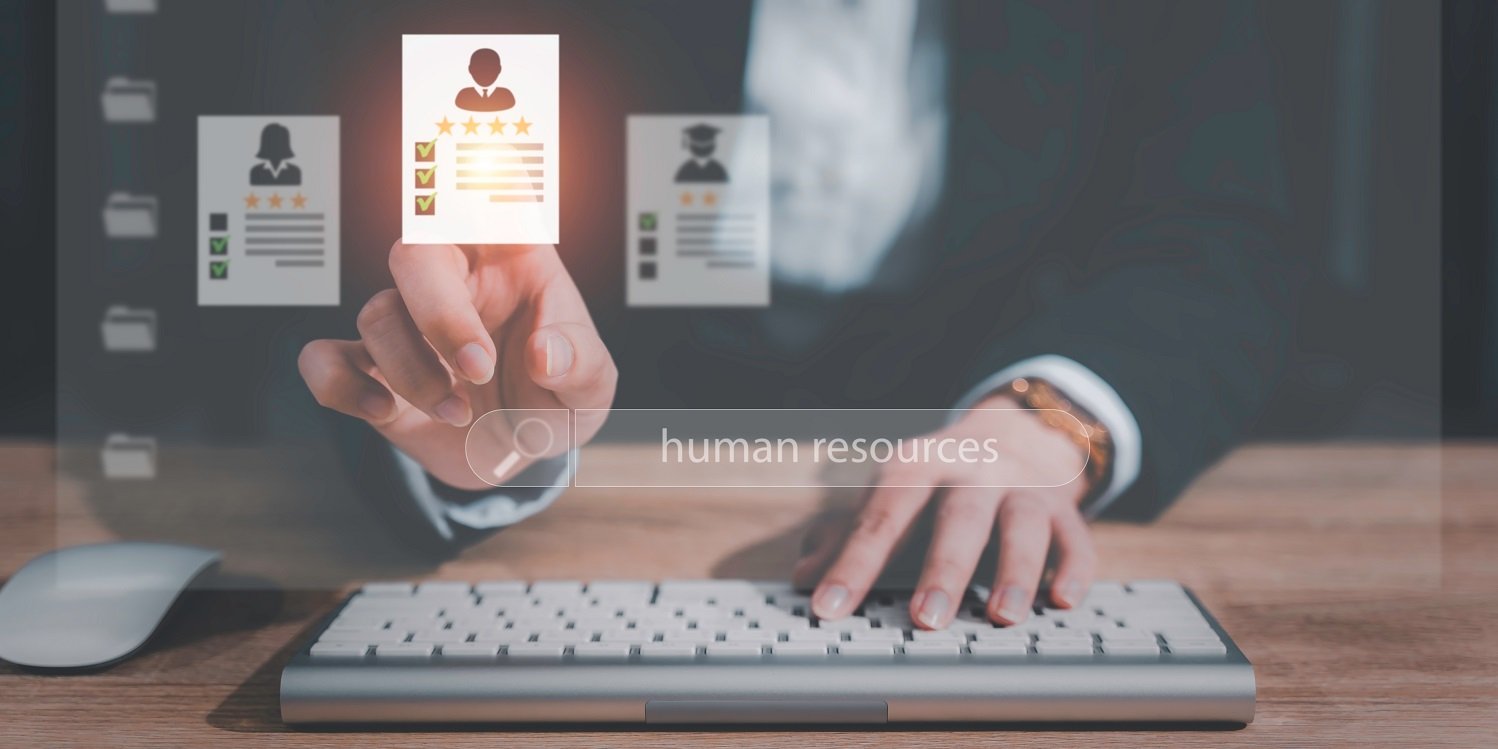Free Guide:
HR consultant Lyndsey McLaughlin explains the types of HR systems available for SMEs and how HR software systems can help small businesses recruit, onboard, and retain employees with enhanced staff management, HR processes, and data security
Whether small or large, all businesses deal with an abundance of different information, especially regarding their employees. Personal details, annual leave, holidays, pay, and training are just some of these.
Increasingly, HR systems are implemented to streamline processes and make them more efficient. It is far more effective for a business to have an automated HR system than to record information manually, such as on a spreadsheet. An HR system can help managers to ensure holidays are covered, and the appropriate training has been assigned. In short, they make life much easier for a business owner, whether large or small.
An HR system can perform different functionalities, which will depend on the needs of the business. For example, there may be multiple HR systems in place in large organisations if there is a need in both the HR and recruitment departments. Some of the typical functionalities of an HR system include:
Essential informational functions, such as recording personal details for employees
Viewing and selecting relevant employee benefits, such as life insurance, medical coverage
Access to viewing and completion of relevant training courses
Onboarding employees – and ensuring the process runs as smoothly as possible
Managing the recruitment process, including candidate applications and succession planning
Simpler core HR systems tend to be offered as a standard version and are great value for SMEs. In other cases, you can tailor more bespoke HR systems and make changes to these and when you deem it necessary, though implementing and running these systems often costs more to the business.
It may seem that HR systems are only helpful if you have many employees. However, they are just as if not even more effective for small businesses. When a company is small but growing, the right hire becomes even more critical than in a large organisation.
A poorly performing employee in a large organisation may go relatively unnoticed. However, in a small organisation, it can lead to the loss of clients, and when you’re still at the building stage, this can be disastrous.
It can also be more cost-effective to use an HR system. As a small business, you may only have a handful of people on payroll and are likely to have minimal HR issues to deal with.
As opposed to hiring someone for an HR administrative role and paying them monthly, investing in an HR system may be more cost-effective and save you the ongoing personnel costs. HR issues become more widespread in a large organisation, so the HR system, together with HR personnel will usually be vital.

A small business may choose to implement many different types of HR systems. These can be tailored to suit the functions associated with your business.
An HR software system can help you manage the day-to-day functionalities of an HR department without the need to employ HR staff. An HR software system will have some or all these features:
Although you may only have a small number of employees, it can still be challenging to manage holidays if you’re relying on a manual process. With a holiday planner in place, employees can view and request their holidays, reducing the time managers must spend on queries relating to holidays. In addition, it can help the business ensure they always have cover organised.
For any business, it is crucial to keep an accurate record of absences. In addition, there may be a time when absence becomes an issue and, without any record, it can be difficult to deal with absence concerns. A core feature of an HR system is to enable you to record absences and run absence management reports.
Training is fundamental for upskilling employees, especially as your business grows. With an HR system in place, you can add appropriate training modules, which your employees can access. In addition, you can keep an accurate record of completed training, which can also be used when making future recruitment decisions.
Adhering to the correct health and safety procedures is paramount for any organisation. With an HR system in place, this can be managed online, including an online accident book and a central point for storing relevant documents and forms.
An effective performance management process ensures employees get the feedback and objectives they need to progress and improve, for the benefit of the business. HR software with performance features helps you implement and manage your performance management strategy.
Statistics have revealed that 95% of Fortune 500 companies have an Applicant Tracking System (ATS) in place; such is the value of these HR systems.
The need for an applicant tracking system will ultimately depend on how much recruitment you undertake as a business. In some cases, small companies recruit the most heavily, especially when they are growing at speed, and an ATS can be an excellent way to save on personnel and time.
The recruitment process is simplified with an applicant tracking system, as candidates apply and are screened via the system. It uses specific keywords to weed out the unsuitable candidates. If you are inundated with applications, this can be a highly effective way to get straight to the most relevant candidates.
An ATS and HR software are different types of systems. The former is recruitment-based, while the latter deals with the HR side of the business. Large organisations almost always have an ATS in place, even if they have a recruitment team. It can be beneficial for a small business too, though.
There are many benefits to implementing an ATS into a small business. These are just some of them:
An ATS can improve the speed of the recruitment process by reducing the need for the manual screening of CVs.
By using an ATS, candidates will receive responses more quickly, and the recruitment process will become more efficient. This makes for a much better candidate experience.
An ATS can allow organisations to plan for their future recruitment needs. Succession planning can significantly improve recruitment overall and make it more successful.
Employee engagement is important for any growing business, and the introduction of employee engagement software can help strengthen the relationship.
In addition, the use of employee engagement software can help improve communication throughout the business. Typically, it will include features such as a chat function, employee surveys, and report functions that can improve the business.
Unlike traditional HR systems, a cloud HR system negates the need to spend a lot of money on a system that needs infrastructure and support from IT professionals. Instead, you usually pay a fee on a monthly or annual basis to access the system.
There are many benefits to using a cloud HR system, including:

There are many benefits to implementing an HR system in your organisation. However, as an SME, it is an expense that you might not feel that you need. If you are wondering whether you need one, these are some tell-tale signs that it might be time to look at an investment:
If you don’t have an HR department and don’t have the need to hire someone on a full-time basis, an HR system can be a worthwhile investment, especially when you have employees who are part-time or on variable hours and have complex holiday entitlements. It can allow you to ensure your HR processes keep ticking over and that information held is accurate while negating the need to hire a full-time employee.
Small businesses need to retain their staff, especially as they grow. An established team can help you to build trust within the organisation. If you are struggling to hold onto staff and have a high level of turnover, it might be a consequence of failing to manage essential employee issues – for instance, ensuring employees are paid accurately and on time, dealing with holiday requests etc. These seemingly minor issues can be enough to eventually cause employees to leave.
When employees record HR data manually, it can lead to mistakes. Inaccuracies can lead to significant issues within a business, especially an SME. For instance, if employees receive incorrect pay, it can cause discontent within the company, and people may even consider leaving. Automating aspects of your HR processes with a software system can help lessen the risk of human error.
If you have stored your HR information manually, this can cause it to be inconsistent and/or difficult to access. For example, you may be holding it on multiple spreadsheets and documents. With an HR system, all the data you need is stored in one central location, making it easily accessible to everyone across the business.
As your business grows, recruitment becomes a vital aspect of the process. Without an ATS in place, you may find it challenging to manage the recruitment process if you don’t have experienced personnel. You can take the sting out of recruitment with an ATS and ensure you are only hiring the right staff. Ensuring the right staff are in place will become vital as you strive to build a successful business.
SMEs tend to start slowly and then go through a period of rapid growth as the client base grows and demand is high. It can be easy to lose track of what is going on when going through this growth period. An HR system in place enables you to maintain a high level of growth while also ensuring you are organised.

HR systems are beneficial for businesses; they also offer many benefits to employees. These are just some of the advantages for employees:
When employees can access the data they need, for instance, their holiday allowance and performance appraisal information, they have a better overall experience throughout the employee journey. HR systems can offer a range of functionalities, but as a minimum, employees want to be able to access critical information as quickly and efficiently as possible.
An HR system can improve employee engagement in the workplace. For instance, if there is a mechanism for communicating with others, providing feedback, and tracking training, it can significantly improve engagement. Training options and open communication are key elements of a positive relationship between an employer and employee.
Employees tend to become discontented without a proper development plan in place. With an HR system, the development can be structured, making it easier to ensure that employees progress in the way they want.
HR software in particular (when from a reputable and security-conscious provider) can help protect employee data and encourage everyone in the organisation to keep data security in mind as they access HR information and documents. A secure HR software system should include password protection, multi-factor authentication (MFA), and be hosted on a secure server.
An HR system can also allow employees to understand their goals and, therefore, what is expected from them. When employees know what the expectations are, it makes for a healthier relationship between the employer and the employee, and the business is more successful.
An HR system can offer a lot of value to a business, especially for an SME that might not have the resources to manage the HR and recruitment functions. However, it is essential to consider your needs and what would benefit your business before you determine the right HR system.
Disclaimer:
The content of this guide does not constitute legal advice. We recommend that you seek professional advice before taking action based on this guide.
The content of this guide has been edited and approved by Lyndsey McLaughlin, HR consultant. Most recent review date June 28, 2022.
© 2022 myhrtoolkit Limited, HR software on demand. All rights reserved. Various trademarks held by respective owners.
Unit 18 Jessops Riverside, 800 Brightside Lane, Sheffield S9 2RX